The True Cost of Ownership: A Lifecycle Analysis of Denver Commercial Exteriors
Renovate for ROI
Strategic Lifecycle Cost Analysis for Denver Commercial Buildings
25.9%
Vacancy Rates in Denver
2040
Net-Zero Emission Deadline
50 YR
Modern EIFS Lifespan
Denver's Exterior Challenge
Why "Standard" Fails in Denver
The "Flight to Quality" trend means older, inefficient buildings are losing tenants. Combined with Denver's unique climate, the wrong exterior choice is a financial liability.
Intense UV Radiation
High altitude sun degrades finishes rapidly.
Freeze-Thaw Cycles
40°F swings in a day crack rigid materials.
Energy Code 2022
New permits require stringent insulation compliance.
Moisture Management
Heavy snowfall requires active drainage systems.
The 40-Year Cost Analysis
Don't be fooled by the initial price tag. Lifecycle Cost Analysis (LCCA) reveals the true cost of ownership.
The Winner: Modern EIFS
Initial Cost: Moderate
ROI Factor: Highest
- ✓ Integrated Insulation: R-7.8
- ✓ Drainage: Prevents water damage
- ✓ Design: Unlimited architectural shapes
- ✓ HVAC: Downsize systems due to efficiency
Fiber Cement Siding
Initial Cost: Low
ROI Factor: Low
- ⚠ Maintenance Heavy: Repaint every 10-15 years
- ⚠ Thermal Bridging: Lower energy efficiency
- ⚠ Joints: Frequent caulking required
Traditional Brick
Initial Cost: High
ROI Factor: Medium
- ✓ Durability: 100+ years
- ⚠ Insulation: Poor without retrofitting
- ⚠ Cost: Expensive material and labor
VAMP Strategic Approach
We Don't Just Stucco. We Engineer Value.
- ✓ Permit & Code Management
- ✓ Moisture Testing & Quality Assurance
- ✓ Thermal Imaging Verification
- ✓ 3rd Party Inspections
Maintenance Schedule
Frequency of major exterior maintenance over 40 years.
Commercial property owners in Denver face a critical challenge when renovating building exteriors: choosing between lower upfront costs and long-term value. This short-sighted focus on initial pricing often leads to escalating energy bills, frequent maintenance demands, and premature system failures that erode your investment returns. This comprehensive guide reveals how lifecycle cost analysis (LCCA) transforms exterior renovation decisions from costly gambles into strategic investments that could enhance your property’s value and operational efficiency for decades.
What is Lifecycle Cost Analysis for Building Exteriors?
Lifecycle Cost Analysis is a standardized economic evaluation method that calculates the total cost of owning and operating a building system over its entire service life, including initial costs, energy consumption, maintenance, repairs, and replacement expenses.
This methodology, endorsed by the National Institute of Standards and Technology (NIST) and codified in ASTM E917 standards, provides commercial property owners with a comprehensive financial framework for comparing different exterior cladding options beyond misleading initial price tags.
Why Denver’s Commercial Market Demands Strategic Exterior Renovation
The Current State of Denver Commercial Real Estate
Denver’s commercial real estate market currently experiences vacancy rates between 17% and 25.9%, creating a highly competitive environment where building quality directly impacts tenant acquisition and retention. Within this challenging landscape, we’re witnessing a pronounced “flight to quality” trend—companies are consolidating into modern, energy-efficient buildings while older properties struggle to attract tenants.
Key market dynamics affecting your property:
- Buildings constructed before 2020 face the greatest leasing challenges
- Modern, amenity-rich properties capture the bulk of market demand
- Lower operational costs through energy efficiency provide competitive advantages
- Tenant expectations for sustainable, comfortable spaces continue rising
Denver’s Climate and Energy Code Requirements
Our unique Denver climate presents specific challenges that directly impact exterior system performance:
- Intense solar radiation from high elevation
- Heavy snowfalls require moisture management
- Significant temperature swings demand superior insulation
- Hail risk necessitating durable materials
The City and County of Denver has established ambitious climate goals, mandating that all buildings achieve net-zero emissions by 2040. The 2022 Denver Building Code incorporates stringent energy conservation requirements, with any exterior wall covering replacement requiring permits and compliance verification.²⁷
Comparing Commercial Exterior Renovation Options: A 40-Year Analysis
How Different Cladding Systems Perform in Denver
We analyzed four prevalent commercial cladding systems using standardized LCCA methodology over a 40-year investment horizon, the typical long-term hold period for commercial assets. This analysis moves beyond simple cost comparisons to model total ownership costs, including energy consumption, maintenance, and system longevity.
The four systems evaluated:
- Modern EIFS with Drainage – Multi-layered assembly with continuous insulation
- Brick Veneer – Traditional clay brick with air cavity
- Metal Panel Systems – Factory-formed steel or aluminum panels
- Fiber Cement Siding – Composite panels of cement and cellulose fibers
What Makes EIFS the Most Cost-Effective Choice?
Our analysis reveals that modern EIFS with drainage may provide the lowest total lifecycle cost for Denver commercial properties. Although not the cheapest option initially, its integrated continuous insulation delivers R-values exceeding R-7, which can generate substantial energy savings that compound annually.
Performance advantages of modern EIFS:
- 50 year lifespan with minimal maintenance requirements
- Drainage technology managing moisture effectively
- Design flexibility allowing custom architectural features
The energy savings alone may offset any initial cost differences within the first decade of operation, while the system continues delivering returns for decades beyond.
Understanding Denver Building Envelope Upgrade Requirements
Permit and Code Compliance
Every commercial exterior renovation project in Denver requires proper permitting through the city’s Community Planning and Development department. Our team at VAMP Stucco manages all permit applications and ensures full compliance with:
- 2022 Denver Building Code energy requirements
- COMCHECK energy compliance verification
- Municipal sustainability mandates
- Fire-resistance ratings where applicable
Integration with Existing Building Systems
A successful Denver building envelope upgrade considers the entire building as an integrated system. Improvements to exterior insulation may allow for:
- HVAC system downsizing reduces both capital and operational costs
- Enhanced moisture management prevents costly water damage
- Improved occupant comfort, increasing tenant satisfaction and retention
- LEED certification eligibility attracting ESG-focused tenants
Energy Efficient Stucco Denver: Beyond Traditional Applications
The Evolution from Traditional Stucco to Modern EIFS
While traditional cement plaster stucco has served Denver buildings for decades, modern energy-efficient stucco systems incorporate advanced technologies that dramatically improve performance. Today’s EIFS with drainage represents a significant evolution, incorporating:
- Secondary water-resistive barriers providing redundant moisture protection
- Integrated drainage planes allow incidental moisture to escape
- Flexible base coats accommodating building movement
Addressing Historical EIFS Concerns
Early “barrier” EIFS systems from decades past experienced moisture-related issues when improperly installed. Modern drainage EIFS, recognized by the International Building Code, functions like a rainscreen system, making it highly suitable for Denver’s climate with its significant snowfall.
Commercial Stucco Repair Denver: Maximizing Existing Investments
When Repair Makes Financial Sense
Not every commercial facade renovation project in Denver requires complete replacement. Our expertise in commercial stucco repair in Denver helps property owners determine when targeted repairs could extend system life cost-effectively. We evaluate:
- Localized damage from hail or impact
- Finish coat deterioration requires recoating
- Flashing failures at windows and penetrations
- Control joint maintenance to prevent crack propagation
Strategic Repair vs. Replacement Analysis
Our team conducts thorough assessments considering:
- Remaining service life of existing systems
- Energy code compliance requirements
- Market positioning and tenant expectations
EIFS vs Stucco: Making the Right Choice for Your Property
Traditional Stucco Characteristics
Commercial stucco Denver applications using traditional cement plaster offer:
- Proven durability exceeding 100 years for brick
- High impact resistance
- Fire-resistant properties
- Minimal insulation value without additional materials
Modern EIFS Advantages
When comparing EIFS vs stucco Denver options, modern EIFS systems provide:
- Integrated continuous insulation reduces energy costs
- Lighter weight reduces structural loads
- Design versatility for architectural details
- Faster installation, minimizing business disruption
How Does Climate Impact Commercial Exterior System Selection?
Denver’s high-altitude climate with intense UV exposure, freeze-thaw cycles, and hail risk requires exterior systems specifically designed for these conditions. Materials must withstand temperature swings exceeding 40°F in a single day while maintaining moisture management capabilities throughout heavy snow events.
Our experience since 2008 has taught us which systems and installation methods perform reliably in these demanding conditions. We’ve seen firsthand how proper detailing at critical junctions—windows, roofs, and foundations—could mean the difference between decades of reliable performance and premature failure.
What Maintenance Requirements Should Property Owners Expect?
Different exterior systems require varying maintenance schedules that significantly impact lifecycle costs. EIFS typically needs recoating every 20 years, brick veneer may require repointing at 30 years, while fiber cement siding could need repainting every 10-15 years.
Our maintenance programs help property owners:
- Schedule preventive maintenance before issues develop
- Budget accurately for long-term expenses
- Maintain warranties through proper care
- Preserve property values with consistent upkeep
Implementation Best Practices for Commercial Exterior Renovation
Critical Installation Details
The projected lifecycle savings from any exterior system depend entirely on proper installation. Key areas requiring expertise include:
- Water-resistive barrier integration at all penetrations
- Proper flashing installation with end dams and positive drainage
- Control joint placement following engineering specifications
- Thermal bridge mitigation at structural connections
Quality Assurance Protocols
At VAMP Stucco, we implement rigorous quality control, including:
- Manufacturer certification for all system components
- Third-party inspections at critical milestones
- Moisture testing before the system is closed up
- Thermal imaging verifying insulation continuity
The Strategic Value of Professional Installation
Why Expertise Determines Long-Term Performance
Modern exterior systems, particularly EIFS with drainage, require specialized knowledge for successful implementation. The multi-layered assemblies must be installed in precise sequence with careful attention to:
- Substrate preparation, ensuring proper adhesion
- Drainage channel creation, maintaining moisture management
- Mesh reinforcement placement prevents crack development
- Finish coat application, achieving a uniform appearance
VAMP Stucco’s Proven Track Record
Since 2008, we’ve completed hundreds of successful commercial projects throughout Denver. Our team maintains:
- Full licensing and insurance protecting your investment
- Manufacturer certifications for major EIFS systems
- Local climate expertise from decades of Colorado experience
- 200+ positive reviews demonstrating consistent quality
Future-Proofing Your Commercial Property Investment
Regulatory Trends Affecting Building Exteriors
Denver’s commitment to carbon neutrality by 2040 will likely drive increasingly stringent energy codes. Properties with high-performance envelopes may avoid costly mandatory retrofits while maintaining competitive advantages in attracting quality tenants.
Market Positioning Through Superior Building Performance
Investing in superior exterior systems positions your property to:
- Attract premium tenants seeking efficient, comfortable spaces
- Command higher rents through lower operational costs
- Qualify for green building certifications, meeting corporate ESG requirements
- Maintain value as older, inefficient buildings become obsolete
Making Your Commercial Exterior Renovation Decision
Key Evaluation Criteria
When selecting exterior renovation strategies, consider:
- Total lifecycle costs, not just initial pricing
- Energy performance impact on operational expenses
- Maintenance requirements affecting long-term budgets
- Market positioning relative to competing properties
- Regulatory compliance with current and anticipated codes
The Path Forward
The data clearly demonstrates that strategic exterior renovation based on lifecycle cost analysis could transform your property’s financial performance. By selecting systems optimized for Denver’s unique climate and market conditions, you may create lasting value while reducing operational risks.
Conclusion
Commercial exterior renovation represents one of the most impactful investments you can make in your Denver property. By embracing lifecycle cost analysis rather than focusing solely on initial costs, you position your asset for superior long-term performance. Modern EIFS with drainage, when properly installed, may offer the optimal combination of energy efficiency, durability, and financial return for Denver’s demanding climate and evolving regulatory landscape. The choice you make today will impact your property’s competitiveness and value for decades to come.
Talk to an expert. Call 303-325-5212

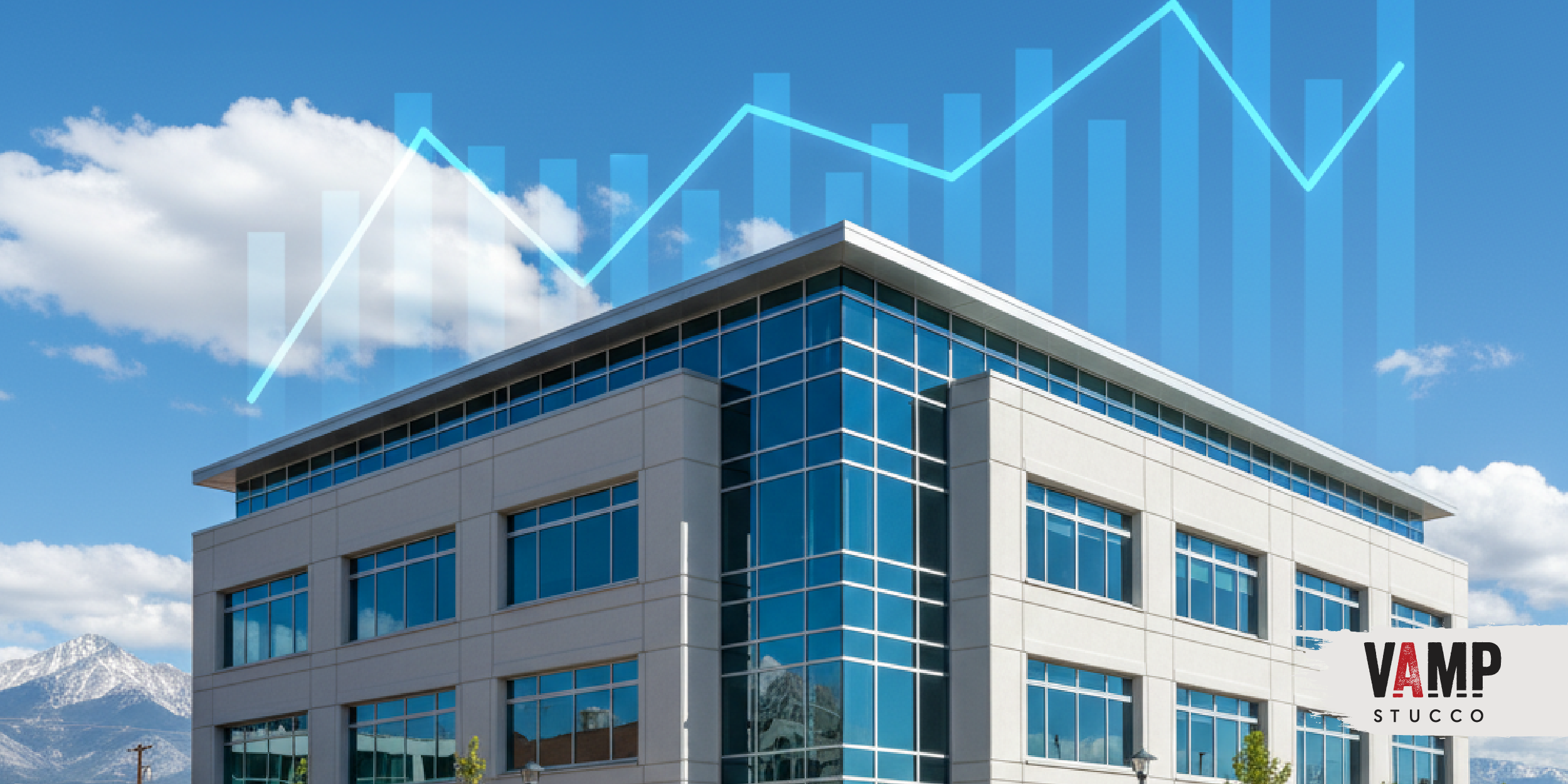
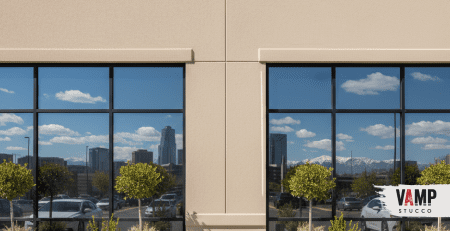
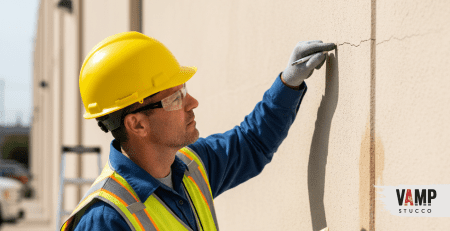
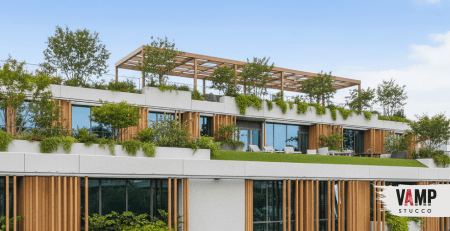
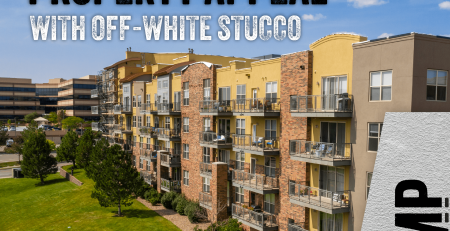
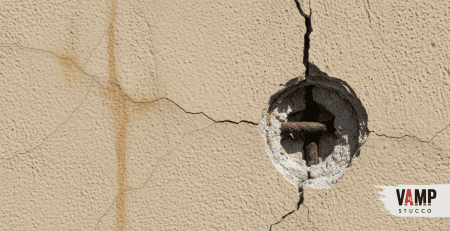
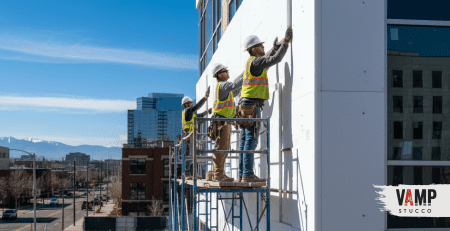
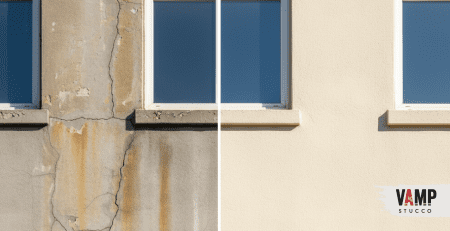
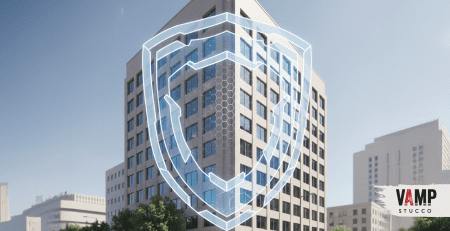
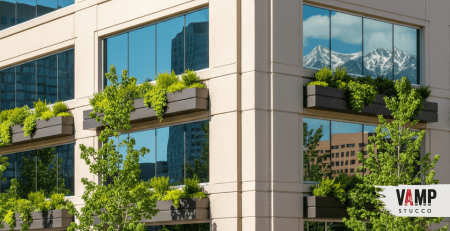
Leave a Reply